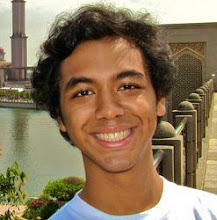“Democracy is the government of the people, by the people, for the people.” That’s what Abe Lincoln said and what your average 5th grader would answer if you ask them what democracy is. An important part of democracy is the election of the people’s representatives, plus a direct election of the leader in some cases. In Indonesian context, we often call our elections “pesta demokrasi” or “the celebration of democracy”, whether we are looking for the new class president, student’s senate leader, or the big kahuna called Presiden Republik Indonesia.
I turned 17 in April last year, which means I am a young tech-savvy first-time voter, the class of voter glorified by the Obama campaign. As the word “voter” implies, I will be a first-time voter only after I give my vote to the man/woman I trust to sit in the comfy chair in the Parliament. However, my dream has been on the verge of destruction since I found out my family wasn’t registered as voters. I discovered this months ago. At that time I ignored it because the list of voters was just the temporary one, and the news frequently said that the General Elections Committee (KPU) was actively updating voter data. So I waited, and waited, and waited, and still, my name is not on that list. If I’m the only one in the family to not be registered, I wouldn’t be so surprised; but until today, my whole family has not been listed yet. Both of my parents, and grandparents for that matter, voted in the 1999 and 2004 elections with no hassle. Thus, it was truly shocking to find out that even they are not registered to vote in the coming election.
Even if I’m sad for not being registered, I won’t be alone. The current KPU has been blasted numerous times for doing such a sloppy work, including missing out on hundred-thousands of voters from Sabang to Merauke. Estimates always vary; but ideally, even one person who lost his right to vote is one too many. Those who vote will get a laughably ginormous ballot (40 parties with multiple candidates in each voting district), the system on who gets the Parliament seat is not fixed yet, and the last news I heard was that the ballots, after they’re folded, don’t fit the ballot box. Surprised? Oh come on. If you’re suprised by those stuffs, you are not an Indonesian.
Now, suppose I will be registered next month and I will be allowed to vote for members of the Parliament this April, I won’t know what to do when I get into that voting booth. The usual method of casting our votes is by perforating the ballot anywhere within the valid area. The process is so deeply rooted in our minds that, in fact, the term “mencoblos” (perforating, punching out) has become a synonim of voting. In election season, people proudly say that they’re going to coblos this and coblos that. Parties and candidates also joined in the coblos craze. The current Governor of Jakarta, Fauzi Bowo, was known for his “Coblos Kumisnye” (punch out his moustache) slogan. PDI-P frequently uses “Coblos Moncong Putih” (punch out the white nose of PDI P’s iconic ox). I bet that in every province, there’s a candidate running with the coblos theme.
Suddenly, the KPU is trying to turn things around, if not mess them up altogether. The Committee is trying to introduce a new, hip way to vote: marking the ballot, affectionately known as “mencontreng” or “menandai”. No, contreng sounds more fun. Voters will cast their vote by making any kind of line with a pen on the ballot-in the valid area, of course. Yet, official simulations consistently show that people still prever to coblos their ballots. The trend led to predictions that a huge number of ballots will be invalid in the coming elections.
Just face it. The KPU hasn’t done anything real to inform voters that they must tick the ballot to vote. The news about this change has been floating around since months ago; however, KPU has never made it clear whether mencontreng is the right way to vote or not. The latest development (if it hasn’t changed too) is that the KPU will allow people to either coblos or contreng. An act of desperation?
I’m an Indonesian citizen, and I have reached the age to vote. I love my country, and I firmly believe in democracy. I want to exercise my right to vote for my representative in the Parliament and to elect my President through the direct election. Sadly, I’m not registered and I’m terribly confused. For now, the question is “Are we voting or what?”

